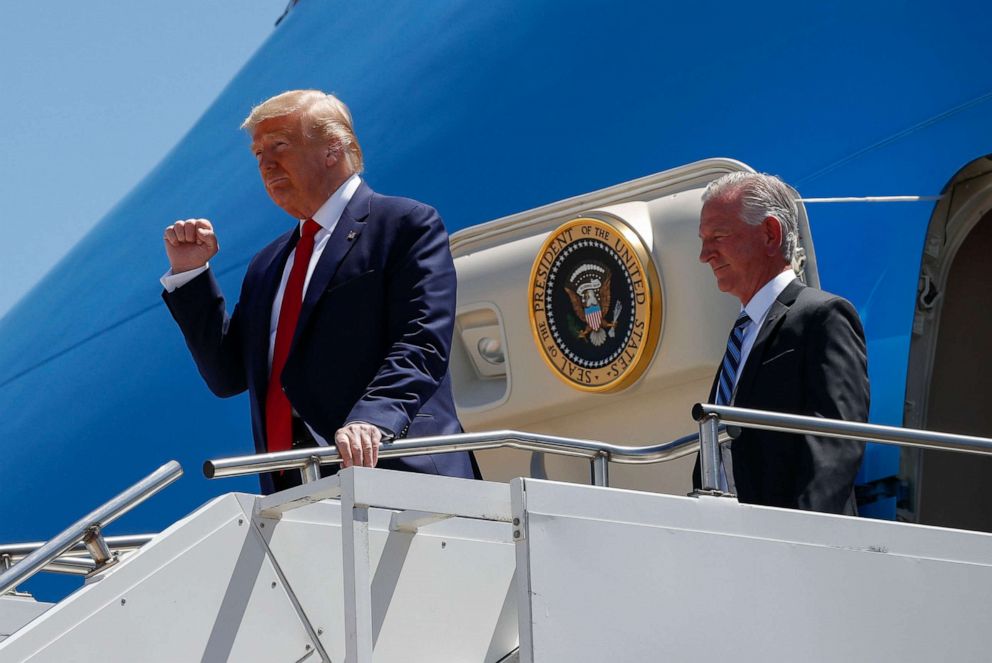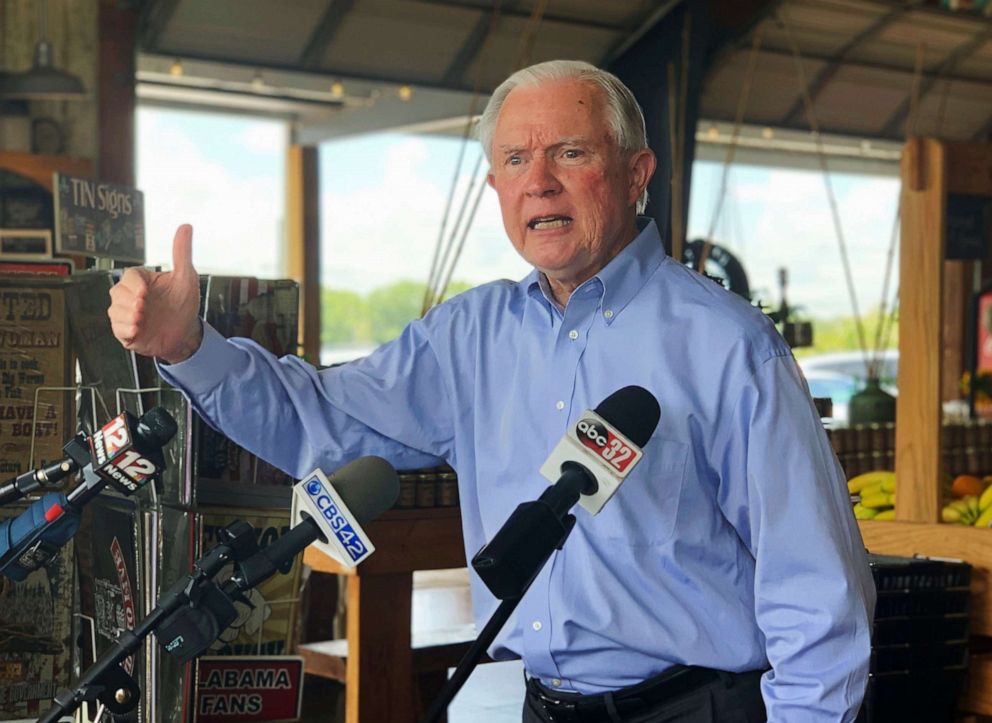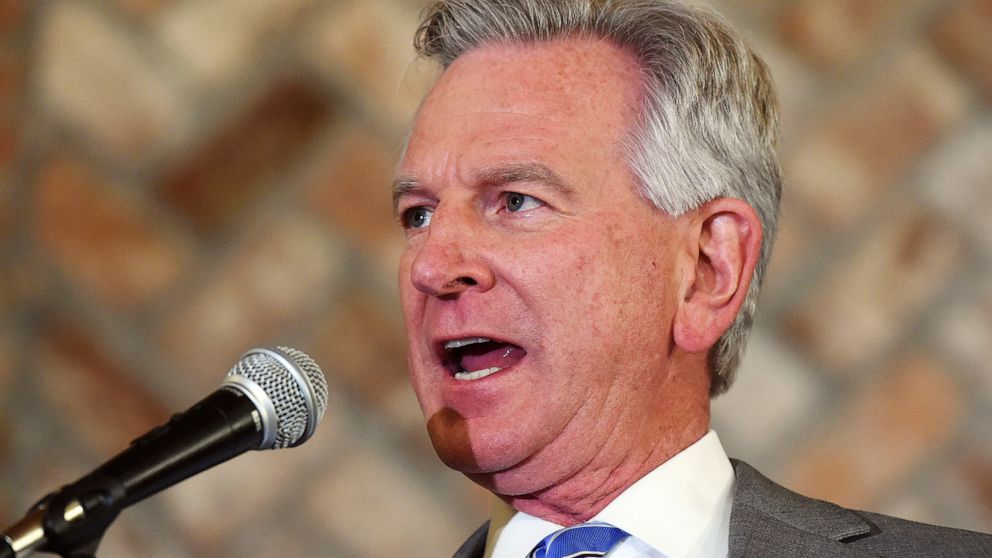In final days, Alabama Senate race revolves around support from Washington
Tuesday's Alabama Senate race has boiled down to one overarching theme: support from President Donald Trump. Though his name isn’t on the ballot, Trump is figuring in heavily in the race to replace one of the most vulnerable Democrats in the Senate.
Former senator and Trump appointee U.S. Attorney General Jeff Sessions is running against Tommy Tuberville, the former head coach of the Auburn football team, in a race which has, in the Deep South, revolved completely around Washington.

Voters are nominating the candidate who will take on vulnerable Democratic Sen. Doug Jones, widely seen as the senator most at-risk of losing his seat come November.
The president made an early entry into the race, endorsing Tuberville over his former attorney general, who left the administration after recusing himself from investigations headed by special counsel Robert Mueller into Russian interference in the 2016 election. Since his early March endorsement, Trump hasn’t been shy about his attacks on Sessions, calling him "a disaster who let us all down," in a Saturday tweet.
Despite not having the endorsement, Sessions, who represented Alabama for two decades, says he will still fight for Trump's agenda in Washington, taking hardline stances on immigration and standing up to China. He also reiterates that he isn't afraid of standing up to the president.
In the meantime, in the days before the election, Tuberville has been largely absent from the campaign trail, though his Twitter and Facebook feeds were filled with messages reiterating his support for the Trump administration.
“This race is not about Jeff Sessions versus Tommy Tuberville. It is about Jeff Sessions versus Donald Trump,” Angi Stalnaker, a GOP strategist in the Yellowhammer state, told ABC News. “This is an election without a candidate, Tommy Tuberville has been largely quiet and unseen for weeks now.”
In the weeks leading up to the race, Tuberville’s campaign reportedly turned down requests to debate and interviews with news organizations, going dark on the trail as Sessions ramped up his attacks without rebuttal, pitching himself as the Trumpian candidate.
Sessions painted himself as an anti-establishment, unafraid, outside candidate, albeit one with a legislative history to back up his platform. And though he’s arguably the candidate with strong records and stances on policies the White House would like to implement, Trump has made it clear he doesn’t want Sessions in the Senate.
Sessions has endorsements from large swaths of the Senate Republican caucus, the NRA, and two former U.S. attorneys general.
However, the Trump campaign even called Sessions' attempts to attach himself to the president 'misleading' and Sessions bid to hold the seat again 'delusional.'

“Donald Trump was never going to endorse Jeff Sessions no matter what,” Stalnaker said. “If a light pole had run against Jeff Sessions, Donald Trump would endorse the light pole. So that strategy of somehow trying to tie himself to Trump from the beginning was a very odd choice.”
Republicans in the state say the results could end up being driven by turnout which, in a runoff election, is usually fairly meager compared to other elections, but the high-stakes nature of the race could pull more people to the polls than anticipated.
“It tends to be pretty engaged voters that participate in run-offs,” Adam Bourne, the chairman of the Mobile County GOP, said. “You're going to have an electorate that's going to know a lot about the issues, and they're gonna really dive in and make their choice based on that.”
Republican Secretary of State John Merrill said his office anticipates turnout to reach anywhere between 17% to 24%, higher than many primary runoffs in recent years. For this election, his office waived absentee ballot requirements, allowing voters worried about the coronavirus pandemic to vote absentee.
Bourne said increased engagement is likely in November, with both President Trump and one of the nation’s most competitive Senate races on the ballot.
Jones has a massive campaign warchest of $9 million, while neither Tuberville nor Sessions were able to near the $1 million mark in their second quarter fundraising. Gail Gitcho, a spokesperson for the Sessions campaign, says the money will come for whoever the Republican nominee is, but Jones’ fundraising lead could better position him for running a negative campaign against Tuberville, who has no legislative record and tends to focus more on his support for the president than policies themselves.
“There's so many things that are unknown about Tommy Tuberville, but you can be certain that Doug Jones knows about them,” Gitcho said.
A New York Times investigation found Tuberville and his former business partner ran a hedge fund, where investments ended in fraud. Tuberville’s partner was sentenced to 10 years in prison, while Tuberville reached a private settlement in 2013.
Tuberville's lawyer maintains he didn't know about how his partner handled the money, and said that his client's short venture into the company was a 'big mistake,' according to the Times.
“Coach Tuberville was as surprised as anyone to learn Stroud had lost all the money, including Coach’s. He never received a dime; it was a dead loss for him and his family,” Tuberville's lawyer told the outlet.
Tuberville's polling lead and fundraising advantage appear to be a show of his support across the state, while Republicans acknowledge a general election with Tuberville as the nominee could make for a more complicated race through November.
"Unfortunately, it looks like we're gonna send a candidate we don't know a whole lot about. I guess Doug Jones, who has nine million dollars can educate us all. And that's a scary scary thought for us," Stalnaker said.




